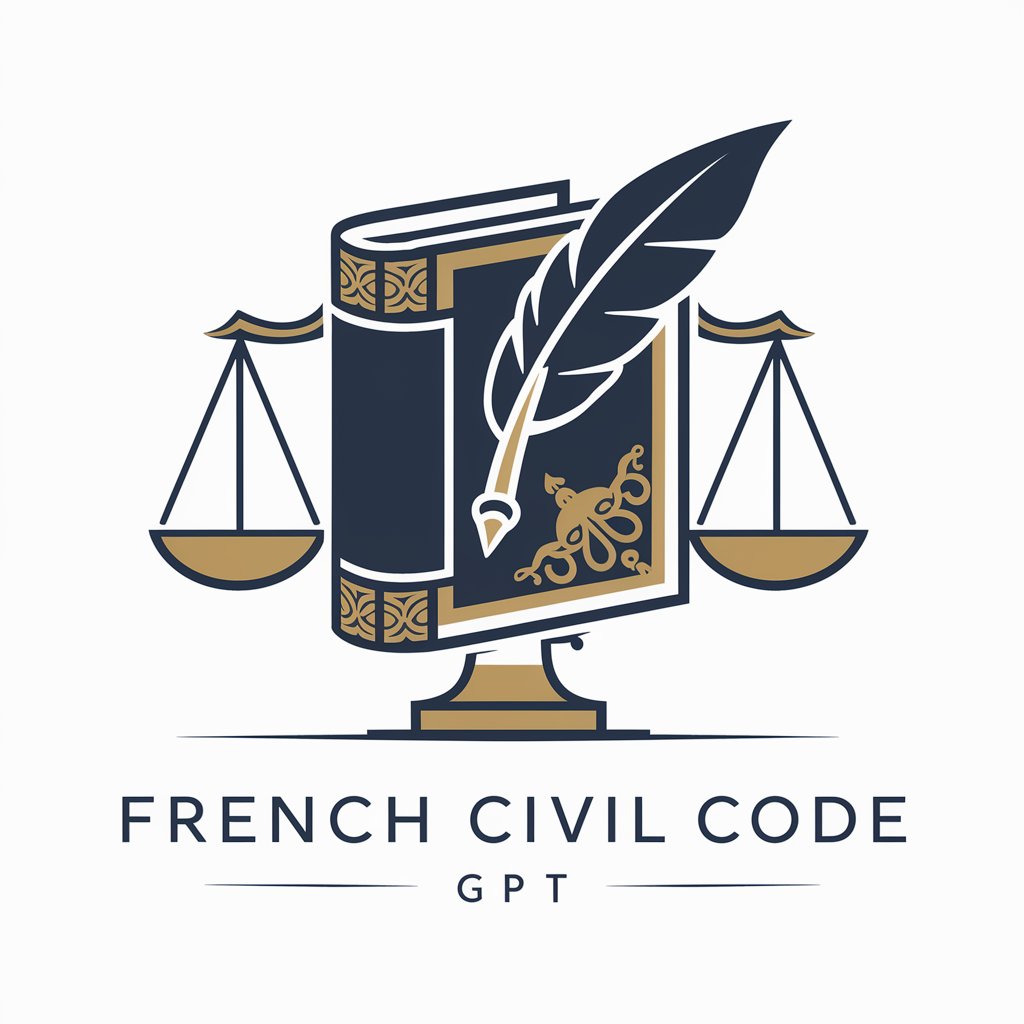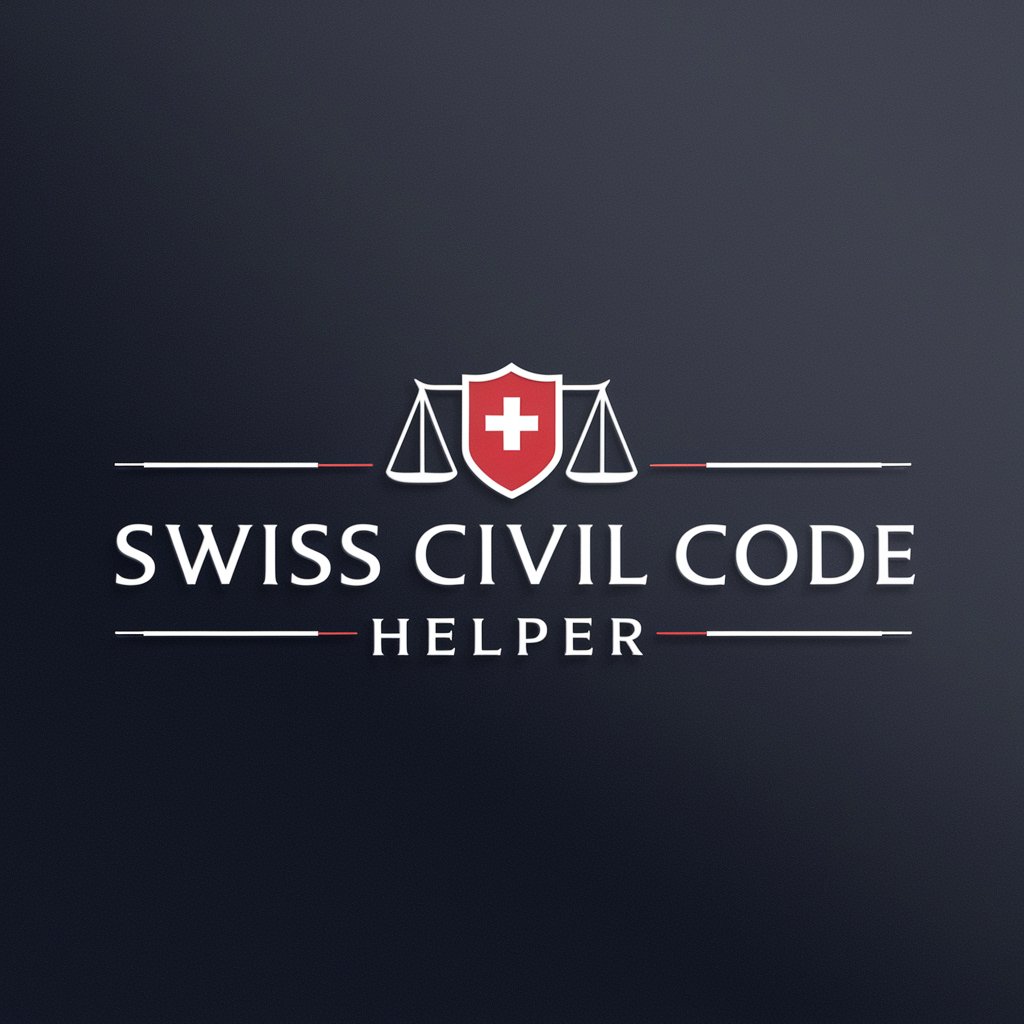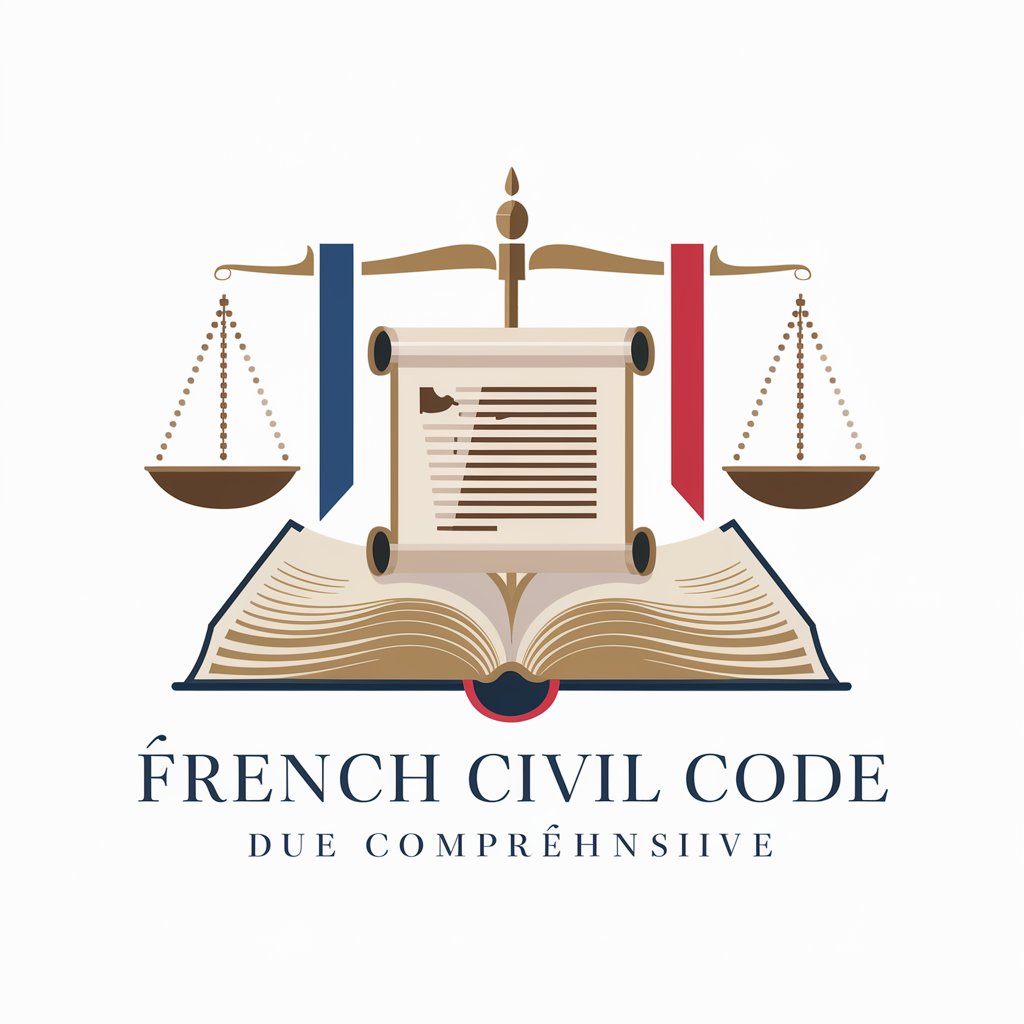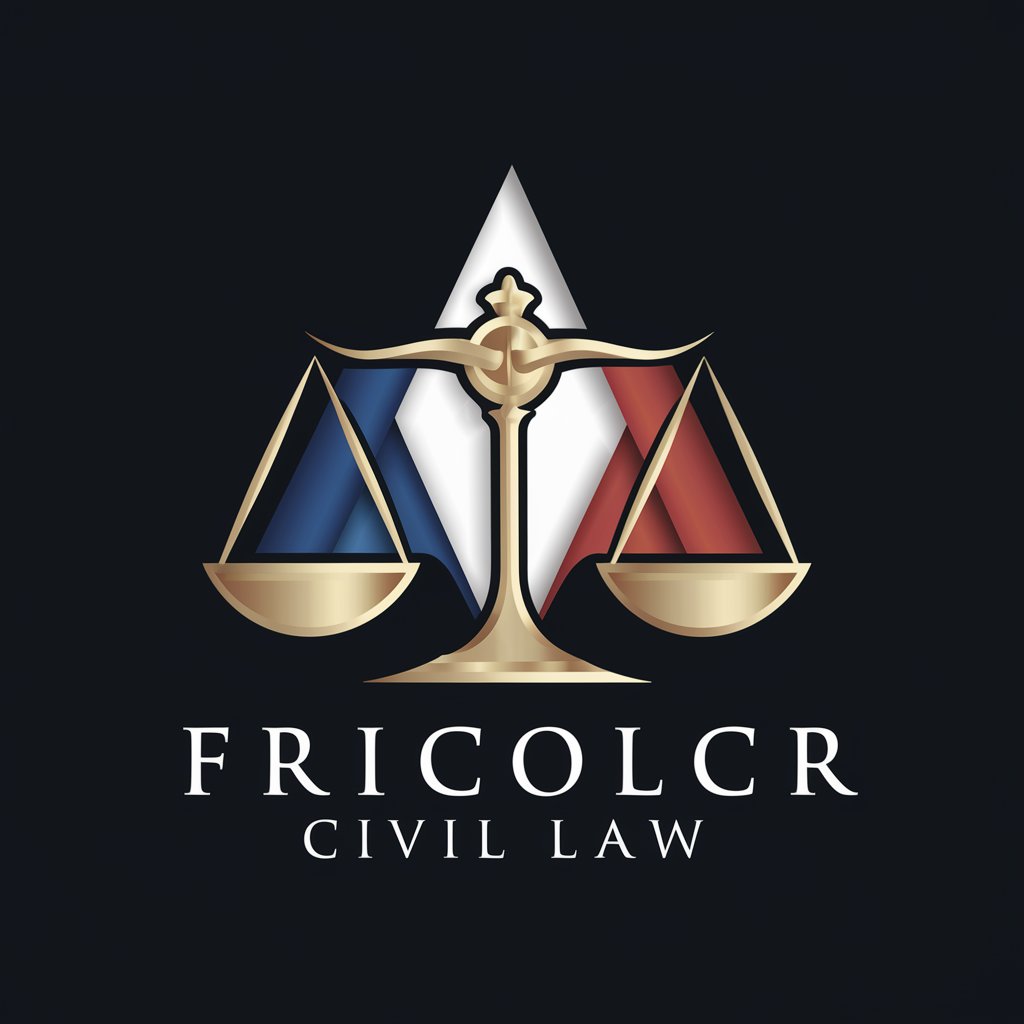
French Civil Code - French Civil Code Insight

Welcome to the French Civil Code GPT.
Deciphering French Law with AI
Explain the application of Article 2 in a specific legal scenario.
Provide a summary of the latest modifications to the French Civil Code.
How does the French Civil Code address issues of property ownership?
What are the legal obligations under Article 9 regarding privacy?
Get Embed Code
Overview of the French Civil Code
The French Civil Code, also known as the Napoleonic Code, is a foundational document in the field of civil law, which has influenced the legal systems of many other countries. It establishes a comprehensive legal framework for civil rights and procedures, property rights, family law, and obligations. The Code was originally enacted in 1804 under Napoleon Bonaparte and has been updated several times to reflect changes in society and governance. An example of its application is in property law, where the Code outlines the rights of property owners and the regulations for transactions, thereby providing a clear legal structure for real estate dealings. Powered by ChatGPT-4o。

Main Functions of the French Civil Code
Defining Civil Rights
Example
Articles 8-9
Scenario
The Civil Code ensures the protection of personal rights and liberties, such as the right to privacy (Article 9). For instance, if an individual's privacy is violated, they can seek legal remedies through the provisions outlined in the Code.
Regulating Family Law
Example
Articles 144, 212, 227
Scenario
The Code governs various aspects of family life including marriage, divorce, and parental authority. It sets out the legal age for marriage (Article 144), the mutual obligations of spouses (Article 212), and the rules concerning adoption (Article 227).
Managing Property and Ownership
Example
Articles 544, 577
Scenario
It outlines principles for property rights, co-ownership, and usufruct. For example, the right to freely enjoy and dispose of one’s property as long as it is not used in a way prohibited by law (Article 544).
Obligations and Contracts
Example
Articles 1101, 1134
Scenario
The Code provides a basis for contractual obligations, detailing how contracts are formed, executed, and dissolved. This includes principles of consent, mutual agreement, and contract enforcement (Article 1134).
Ideal Users of French Civil Code Services
Legal Professionals
Lawyers, judges, and legal scholars benefit from detailed regulations and guidelines provided by the Code to handle civil litigation, interpret legal matters accurately, and provide sound legal advice to clients.
Academics and Students
Students and researchers in law and related fields use the Civil Code as a critical resource for studying the foundation of civil law principles and comparative legal analysis.
General Public
Individuals seeking to understand their rights and obligations under the law, such as in matters of property ownership, marriage, and contracts, can consult the Code for guidance.

Guidelines for Using the French Civil Code
Start your trial
To begin, access a trial of the French Civil Code resources at yeschat.ai for an introductory experience without the need to sign in or subscribe to any advanced plans.
Identify relevant articles
Identify the specific article or section relevant to your legal question or situation, using the comprehensive index or search function available in digital versions.
Interpret the articles
Understand the language and implications of the articles. Consider consulting secondary sources or legal commentaries if the text is complex or ambiguous.
Apply to your situation
Apply the interpreted law to your specific case or scenario. Ensure that the application aligns with current legal practices and any recent amendments or judicial interpretations.
Seek professional advice
For complex issues or significant legal decisions, consult with a legal professional who can provide detailed advice and representation based on the Civil Code.
Try other advanced and practical GPTs
Civil Legal Challenger
Navigate Texas Law with AI

Civil rights
Enhancing text generation with AI

Drept Civil
Empowering Legal Professionals with AI

Swiss Civil Code Helper
Explore Swiss Civil Law, Powered by AI

Especialista en derecho civil y procesal civil
Your AI-powered legal drafting assistant

Assignment GPT
Empower Learning with AI

Chinese Civil Code Advisor
Decoding Chinese Law with AI

Civil 3D AutoLISP Alchemist
AI-Powered AutoLISP Crafting for Civil 3D

Le ingénieur Génie Civil
AI-powered civil engineering guidance

Professional Civil Engineer
AI-driven Civil Engineering Expertise

Birdwatch Expert
Elevate Your Birdwatching with AI

Unreal Expert
Powering Unreal Creativity with AI

Detailed Q&A on the French Civil Code
What is the purpose of Article 9 of the French Civil Code?
Article 9 of the French Civil Code ensures the protection of an individual's privacy. It provides the legal framework for individuals to seek judicial remedies to prevent or stop infringements on their personal life, which may include measures like sequestration or seizure.
How does the Civil Code address the issue of retroactivity of laws?
Article 2 of the French Civil Code clearly states that laws only apply for the future and have no retroactive effect unless explicitly stated otherwise. This principle ensures legal certainty and fairness in the application of laws.
Can the French Civil Code override international laws?
No, the French Civil Code cannot override international laws. According to Article 55 of the French Constitution, international treaties and agreements have a higher authority than domestic laws, including the Civil Code, once they are ratified and published.
What legal protections does the Civil Code offer against discrimination?
The French Civil Code includes provisions against discrimination, particularly through its emphasis on equality before the law and the prohibition of practices that undermine human dignity or the equality of individuals.
What role does the Civil Code play in French property law?
The French Civil Code provides a comprehensive framework for property rights, including ownership, transfer, and inheritance. It outlines procedures for transactions, protects property rights, and resolves disputes related to property.





